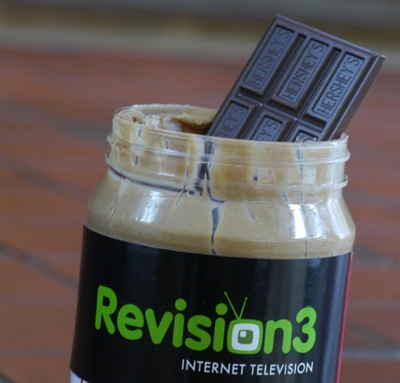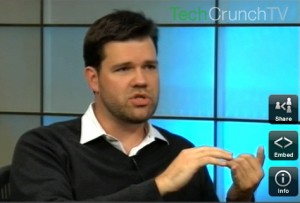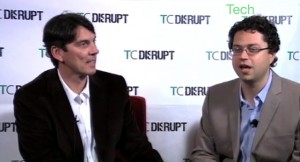by Kevin Nalty
Small companies clone big companies all the time. And by clone I don’t just mean steal a basic idea. I mean clone almost literally – they just plain rip off every single feature and hope for the best. It certainly saves time on user testing.
Big companies, particularly big tech companies, don’t do this as much. Pride and ethics come into play at an individual and team level. Pure copying just isn’t how things are done. Instead they tweak a little here, add a little there, and launch it as a variation of the original. That’s evolution, not stealing. And most of the time it doesn’t work very well. Facebook’s users just don’t seem to want to behave like Twitter users, for example, no matter how hard Facebook tried to get them to change. And Google Buzz, besides the privacy snafus in the beginning, is just a little too complicated to get people using it wildly. Plus, I’m not convinced that people want all that junk in their email inbox.
But pure clones work well. Microsoft crushed Netscape in the 90s by simply building their own web browser and giving it away for free. Webmail and instant messaging services across Microsoft, Yahoo, Google and AOL are all largely the same, and that market is fragmented among all of those companies. If there’s a better way to do mail and messaging, no one has figured it out yet and gotten all the users to switch to them.
And that’s why it’s time for Google to just plane clone Facebook. Enough with the fancy pants Google Buzz Twitter-Facebook-Yelp killer. They need to raise the white flag and just copy Facebook right down to the details. Otherwise the war is over before Google even got to the battlefield.
So I’m not surprised to see that Google appears to be working on exactly that – a new social network that isn’t Orkut and isn’t Buzz but that will be 100% focused on being as good as or better than Facebook.
Why do they need to do this? Google is, after all, firing on all cylinders. Google continues to grow fast and has $24 billion a year in revenue. They dominate search marketing, possibly the most profitable business in the history of our species if you don’t include taxes, drugs or prostitution. Facebook has a long way to go to catch up.
Or do they? Facebook’s self serve ad business is exploding, say our sources, and may be significantly more robust than even the most favorable third party forecasts predict. Google let’s self serve users target ads based on search queries, and that works extremely well. But Facebook knows much, much more about its users than Google does, and allows self serve ads targeted to extremely relevant and timely user information. And with Facebook’s strategy of organizing the Internet through Facebook Platform has created a big open door for them to later insert ads on those sites, too. Facebook could be challenging Google’s revenue lead much sooner than people think. It’s not outrageous to think that the two companies could be in a dead heat by 2015, for example. See The Age Of Facebook for more of my thoughts on the rise of Facebook and why I think they’ll dominate the next decade.
Facebook is already bigger than Google in many ways. Not in total unique visitors per month – Facebook’s 550 million is still a lot less than Google’s 900 million. But Facebook has more page views: 250 billion v. 165 billion per month. And total minutes spent on Facebook is more than 2x Google: 150 billion v. 73 billion. (All stats are Comscore worldwide, May 2010).
Google needs a horse in the social networking race to be able to defend itself against Facebook over the long run. And the only way they’re going to be able to compete effectively is to just clone the darn thing. Original? No. Honorable? nope. But people have very short memories, sadly, and it’ll all blow over shortly.
There is one area where Google can gain a quick advantage – in truly open data with simple export tools and easy to understand privacy settings. I’d recommend going with the Twitter model on privacy – it’s all public or it’s all private (for approved friends only). It’s not hard to understand, and very few people actually choose the private option.
What Google shouldn’t do – must not do – is try to tie the service to other Google products for the wrong reasons. Microsoft’s web properties are constantly hobbled by the strategic decisions of a parent company that must protect an aging Windows and Office revenue stream, for example. Google must avoid that pitfall. And Facebook’s Twitter experiments, as well as Google bolting Buzz onto Gmail, show that users don’t like having the fundamental way they use products change very much. They need to flock to Google Me, or whatever it’s called, simply because they like the service.
This will be the great battle in consumer Internet over the next few years if Google does it right. And while I don’t like seeing clones, there’s really no other choice for Google. And at least the users will win – one thing Facebook needs right now is a little competition.
ps – Next up would be the Google Twitter clone. An exact copy, except with an open protocol that would let anyone run the service on their own server. They should call it Glitter.









WARNING I DID NOT START THIS SPAM ok susie was going to a river where she watched the school of dogs dissecting cats that could fly because of their lung cancer thus enabling the time portal to pull down the trigger that made the lever go down into Narnia which was currently in a war against the Summer Queen who made eternal summer, when the summer queen was vanquished Fred came to save the day transporting all living babies in the world to travel first class to Funkytown singing Funkytowwwwwn the whole way there the babies enjoyed their sparkling white grape juice which made them all fart Beethovens Ninth backwards making them change each others pampers for a milenium until two magical beavers came and started to shop at wal-mart because of it having the lowest prices they bought firewood to burn the Ohio River therefore making Lisa Nova drinking an 8 ounce glass of water flexing her liver making it break thus powering all of new york city for the rest of the year making arnold schwargentator happy to be alive until the terminator kills him everyone is living happily except George Bush since lisa novas liver broke and two squirrels from sydney come in to kidnap president lincoln holding him as ransom for 70 nuts or walnuts making the world fall in the Great Depression 2 thus starting war against switzerland because of all of the obese people in america wanting it’s magical chocolate mines causing them to get more obese and starting weight watchers to gain even more weight causing the worlds rotation to end effecting into the sun being blocked by an enormous bottle sun tan lotion sold by an eskimo in iceland causing a humonguos meteor to fall into austrailia and killing all of the worlds opera singers thus making everyone happy again and then everyone died except nalts, he lived. (run-on consider revising)